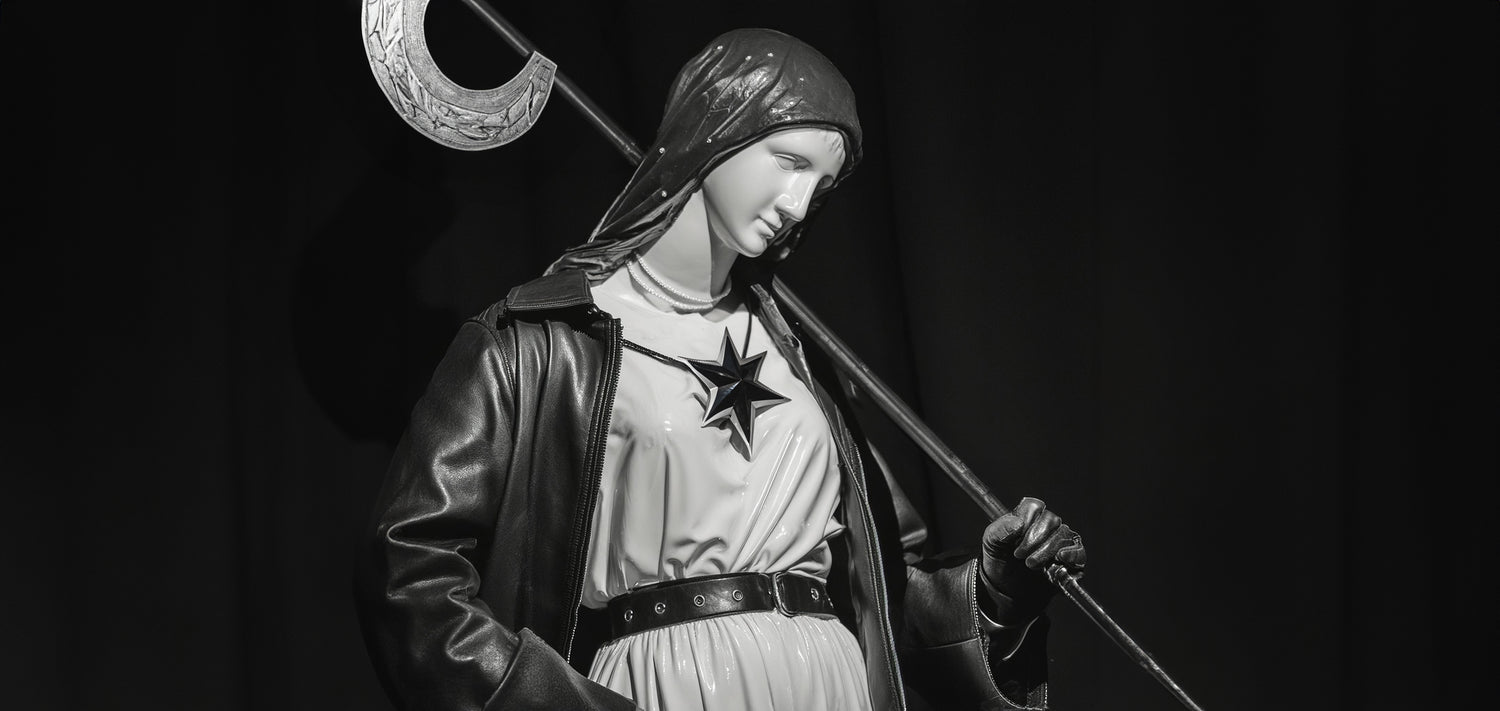
Opening soon
Subscribe to be the first to know when we launch.
In the meantime, you can visit our Etsy Shop
The story behind EXILIO

EXILIO is a personal artistic project created by the Andalusian artist Laura Wächter, that was born as a shelter and a place of release in a chaotic and hostile world. It was born both from a need of channeling the nonsense of late stage capitalism and the deep urge to recover my cultural heritage after moving abroad as I grow older. It is my way of transforming dissociation, distance and longing into something tangible, of carrying Andalusia and memories with me through traditional, popular and personal symbols that still hold meaning. It is a declaration of belonging, identity, and resistance.

Andalusia has always been a land of culture and movement—of those who arrived, those who stayed, those who were forced to leave, and those who left looking for opportunities. Part of EXILIO is a tribute to that mixed and rich culture, reclaiming it from an alternative perspective. It is a project both personal and collective—a way to remember and celebrate Andalusia as a crossroads of cultures.
I was born in Algeciras, like Paco de Lucía, and spent my first year of life in Bolonia, where the ruins of Baelo Claudia stand as a testament to the cultures that have shaped Andalusia. My mother lived in Chipiona, home to Rocío Jurado, a powerful voice that transcended folklore to become somewhat of a feminist and LGTBQ+ icon for her public opinions. At four years old, my family moved to Casares, birthplace of Blas Infante, a socialist politician and left-wing activist considered the father of Andalusia.
I grew up listening to flamenco vibrating through the floor, as the local flamenco society rehearsed beneath my home. While other girls wore coral earrings and traditional dresses during key festivities, I watched from the sidelines. My mother, a quite alternative woman who worked as a teacher in the local school, rarely dressed me like the others. From an early age, I learned to see Andalusia with both deep attachment and a touch of distance—not fully belonging, yet completely immersed in the culture.

Andalusia is more than the land where I grew up; it is a living history of fusion and survival. For centuries, it has been shaped by Tartessians, Visigoths, Romans, Arabs, Jews, Romani people… It is a crossroads, a remix, a mishmash of cultures that have left their mark on its art, architecture, and way of life.
For me, EXILIO as a name carries this dual meaning: it is about those who have been repressed and displaced, and also about the deep personal pain of separation from one’s roots. I left Andalusia to live in the United States, a place where the political climate feels increasingly hostile, where far-right ideologies are rising once again. And the memory of my great-grand father who was executed during the fascist regime in Spain because he chose to stay and fight just keeps coming to my mind.
In a time when fascism and racial purity narratives are resurging, EXILIO is an act of defiance and mestizaje pride. Andalusia has never been homogeneous, and that is its greatest beauty. True identity is not about exclusion or exclusivity, but about embracing complexity.

